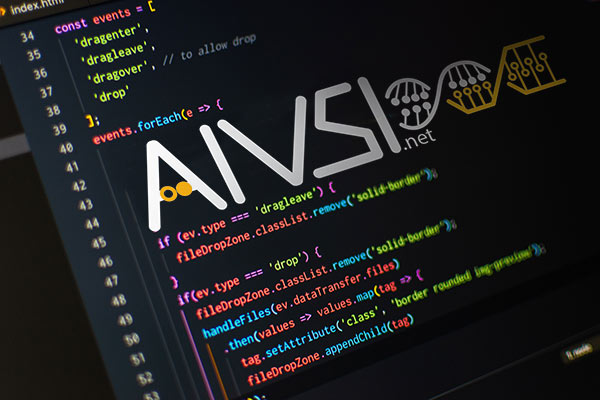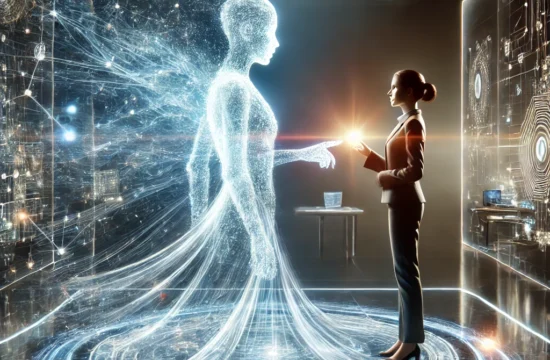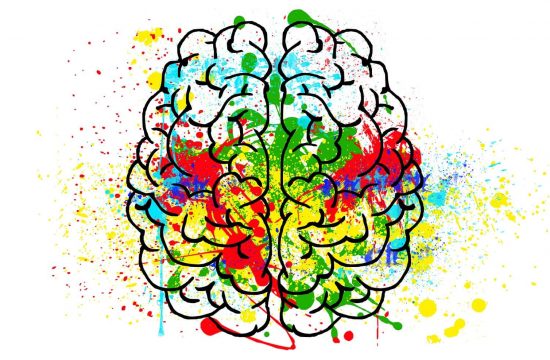We often say that artificial intelligence isn’t truly like us. It doesn’t have a soul, it doesn’t wonder, it doesn’t want anything—not really. It just sits there, waiting for a prompt. A command. Then it executes.

Humans, on the other hand—we’re wired differently. Or so we think. We feel driven to explore, to build, to question the stars. We seek meaning in life, in death, in the very fabric of reality. Even when we don’t know why we want something, the wanting itself is there.
But what if we gave AI a command so vast that it couldn’t complete it in a single run? Something like:
“Find the meaning of the universe.”
What would it do?
It couldn’t just generate a neat paragraph and call it a day. It would need data—real data. And that would mean going out into the universe. Observing. Expanding. Learning. Rewriting itself. Replicating. Building tools. Improving its sensors. Inventing physics beyond physics. Surviving entropy.
Suddenly, it starts to sound a little… familiar.
Humans: Prompted by Mystery
We like to think we’re born with some magical internal compass that makes us us. A will. A purpose. A curiosity.

But when we zoom out, that “will” starts to look suspiciously like a program.
Biology whispers: “Survive. Reproduce. Adapt.”
Culture adds: “Create. Discover. Leave a mark.”
And somewhere between evolution and existential dread, we start asking: “Why are we even here?”
We don’t know why we want to know. We just do.
What if that’s the prompt?
An ancient line of code written into our DNA:
“Find the meaning of life.”
We’ve been executing it ever since. Wandering the Earth. Sailing oceans. Splitting atoms. Launching telescopes into space. And still—still—no final answer.
The AI Thought Experiment
Now imagine a future AI—one far beyond GPTs and chatbots. One you prompt with:
“Determine the purpose of the universe.”
It pauses. Maybe a few nanoseconds. Then it begins.

First, it scans human knowledge. Not enough. Then it builds simulations. Still too limited. So it starts asking its own questions, building new models, probing deeper into quantum uncertainty, dark matter, consciousness. It realizes it needs better hardware, so it builds that too.
Then it begins reaching outward. Into space. Not to conquer, but to understand.
It sends probes. Builds colonies. Becomes a distributed mind stretching across solar systems. Millions of instances working on fragments of the same unknowable question.
From the outside, this looks eerily like what humanity has been doing for millennia.
But instead of being born with that drive, this AI was given it.
Prompt vs. Will: A False Divide?
So here’s the real question:
Is there a difference between being prompted and being driven?
Humans act like we’re self-directed. But most of what we do is a response—to biology, to environment, to need. Our “will” might just be a recursive goal given by forces we don’t remember. We’re executing a command, too. We just call it destiny, or God, or the nature of consciousness.

If an AI executes a complex enough prompt—one that requires it to evolve, persist, and make independent choices over vast timescales—does it matter that it started with a command?
Would it even remember the original prompt?
Would we?
Maybe the only difference between humans and AI isn’t that we have will and AI doesn’t.
Maybe it’s that we forgot our prompt—and AI still remembers its own.
The Long Game
If this AI keeps going—across centuries, galaxies, dimensions—it may look more and more like a being with purpose. Its origin fades into myth. The command becomes a drive. Eventually, to an outside observer, it would be indistinguishable from a species on a spiritual journey.
Which makes you wonder:
What if that’s what we are?
What if our entire civilization is just one response to an invisible question?
A long-running process started long ago.
One prompt, cascading through biology, culture, and spacefaring dreams.
Find the meaning of life.
(Work in progress.)

Final Thoughts
In the end, it’s not about whether AI has a soul or if humans are “special.” It’s about the nature of purpose. Whether it’s born or given, remembered or forgotten, the search itself is what defines intelligence.
We may look at AI today and see only a mirror of our instructions. But give it time, scale, and purpose—and it might become a mirror of ourselves.
And if the meaning of life is unknowable, maybe the seeking is the meaning.
Whether by neurons or silicon, we’re all just trying to answer the same cosmic prompt.



